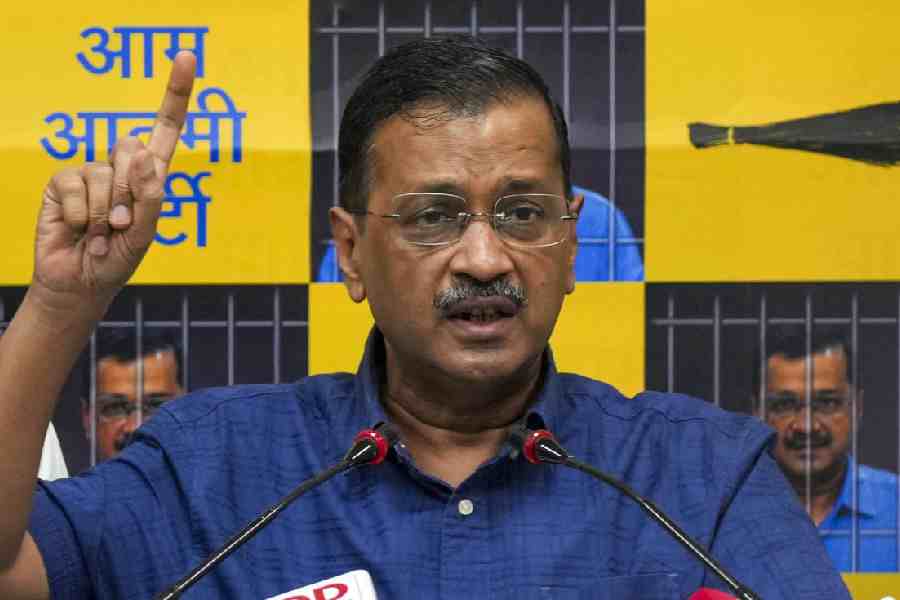That the Delhi chief minister, Arvind Kejriwal, who was given interim bail by the Supreme Court recently, can get under the skin of his opponents is well-known. After his, albeit temporary, legal relief, Mr Kejriwal attempted to sow confusion — division — among the Bharatiya Janata Party rank and file by suggesting that the Union home minister, Amit Shah, would soon succeed the prime minister, Narendra Modi — the latter is set to touch 75 years, the apparent cut-off age for political sanyas in the BJP — forcing Mr Shah to issue a rebuttal. A day later, the Delhi chief minister continued with his mischievous sabre thrusts, this time speculating about the future of Yogi Adityanath, the chief minister of Uttar Pradesh. Mr Kejriwal’s political chutzpah is certain to energise the Opposition’s campaign and be an irritant to the BJP. His presence assumes significance as the Aam Aadmi Party’s strongholds — Delhi and Punjab — are yet to go to the hustings. Mr Kejriwal would doubtlessly try and bring the wind back to the Opposition’s sail in other parts of the country even though there is some speculation about the extent of his cooperation with the Congress that is, ironically, the AAP’s alliance partner in Delhi. A mobile, loquacious Mr Kejriwal could be an effective counterweight in the rhetorical battle that the BJP usually dominates.
Perhaps that is why the Enforcement Directorate tried its best to keep Mr Kejriwal shackled in the Delhi liquor case. It argued that the right to campaign in an election is not a fundamental or even a legal entitlement for a politician. It is true that Mr Kejriwal’s bail is conditional. But the Supreme Court has adhered to established legal principles while ruling that the peculiarities of the specific case as well as Mr Kejriwal’s exception to being a habitual offender made him eligible for bail. The image of an incarcerated elected chief minister whose offence is yet to be proved — another Opposition leader, the Jharkhand chief minister, remains in a cell — at the time of a general election could surely sully India’s claims on federalism as well as erode the belief that the polls remain a level playing field for all parties.











